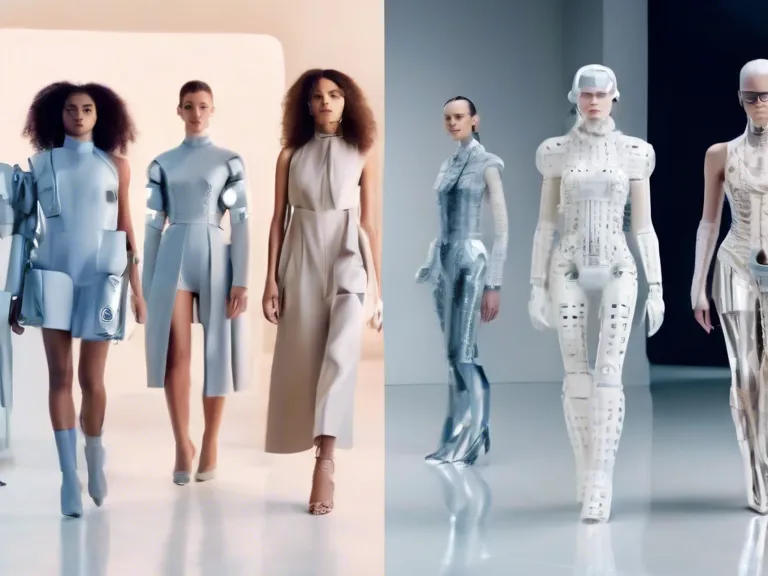
With the rise of artificial intelligence (AI) technology in the fashion industry, questions about its ethical implications for the modern Gen Z consumer have become increasingly relevant. From virtual influencers to AI-powered design tools, the intersection of AI and fashion design raises concerns about authenticity, sustainability, and labor practices. This article explores the ethical considerations that arise when AI enters the world of fashion design and production, and the impact it has on the values of the Gen Z demographic.
One of the key ethical implications of AI in fashion design is the issue of authenticity. As AI algorithms become more sophisticated in replicating human creativity, the line between original design and AI-generated content becomes blurred. This raises questions about the value of creativity and craftsmanship in the fashion industry, as well as the importance of supporting human designers and artisans. Gen Z consumers, who prioritize uniqueness and individuality, may be wary of brands that rely heavily on AI for their product development.
Another ethical concern related to AI in fashion design is its impact on sustainability. While AI can help optimize production processes and reduce waste, it also has the potential to perpetuate fast fashion trends and encourage overconsumption. Gen Z consumers, who are known for their eco-conscious attitudes, may be conflicted about supporting AI-driven fashion brands that prioritize speed and volume over sustainability and ethical practices.
Furthermore, the use of AI in fashion design raises questions about labor practices and job displacement in the industry. As AI technology becomes more advanced, the need for human designers and garment workers may diminish, leading to potential job losses and economic inequalities. Gen Z consumers, who value social justice and fair labor practices, may be concerned about the impact of AI on the fashion workforce and the potential exploitation of labor in AI-driven production processes.
In conclusion, the ethical implications of AI in fashion design for the modern Gen Z consumer are multifaceted and complex. As AI technology continues to transform the fashion industry, it is crucial for both brands and consumers to consider the ethical implications of AI in design, production, and consumption. By prioritizing transparency, sustainability, and social responsibility, fashion brands can build trust with Gen Z consumers and create a more ethical and sustainable future for the industry.



